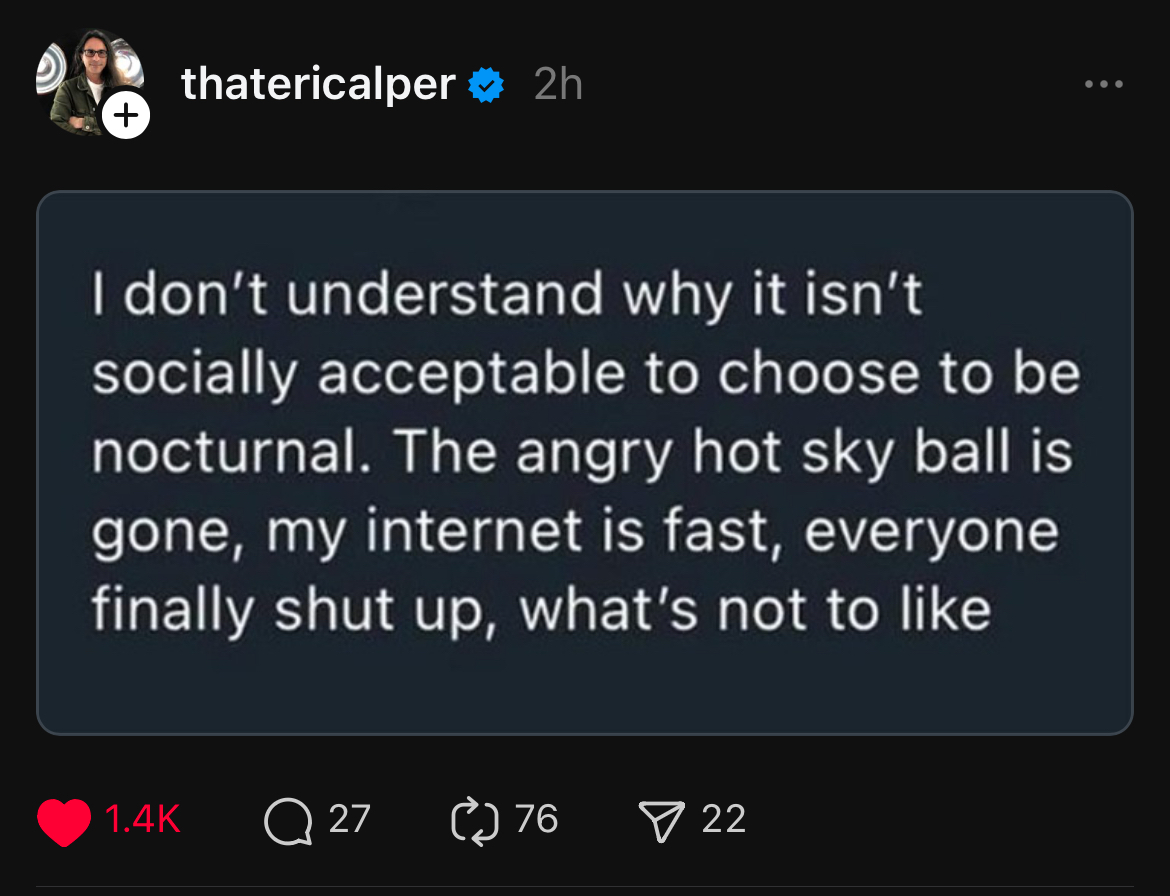this post was submitted on 29 Oct 2024
860 points (99.7% liked)
196
16490 readers
1669 users here now
Be sure to follow the rule before you head out.
Rule: You must post before you leave.
founded 1 year ago
MODERATORS
you are viewing a single comment's thread
view the rest of the comments
view the rest of the comments

It's not that this lifestyle isn't socially acceptable, but it comes with some disadvantages. As pointed out by others, if you have a partner that is living an opposite lifestyle ("normal" day time work - night time sleep) you both wouldn't have that much time together being awake and active. Also, another disadvantage is that everyone else is active during your resting time, which is during the day. Loud neighbors, traffic, socializing, etc. Errands, like appointments, are often possible only during daytime.
Attending a nocturnal lifestyle over an extended period of time is also less healthy from the biological point of view.
If your biological preference is set to be nocturnal however, and you can compensate for the aforementioned disadvantages, go for it. Nobody will be judging you.
I commented on someone else saying this, but I'll say it here also. There's no way to isolate the variable of a noctural lifestyle. There are many confounding factors that can't be controlled. Is it that being awake at night that isn't healthy or are people who feel like being awake at night already typically less healthy? I'd bet on the latter.
We can take vitamin D supplements, so that isn't the issue. However, a lot about your lifestyle must change with this, as you say. Is this a cause? Are nocturnal favoring people associated with mental health issues? Do nocturnal people eat less healthy? (Fewer options to healthy eating open?)
Studies involving humans are flawed. We can't control every factor of someone's life, so usually it's self reported and also not forcing lifestyle changes on people —at least not for long term studies. They're still useful, but people often look at studies that say "nocturnal lifestyle associated with worse long-term health outcomes" and read "nocturnal lifestyle causes worse long-term health outcomes" which is a very different thing.
Something something correlation doesn't imply causation. I agree.
Just kidding, I read the whole post. Not kidding about the agreement , though.
My wife is nocturnal, and also is currently having severe depression. I think she just prefers to avoid people as much as possible, because of the depression, not that the nocturnal lifestyle has caused the depression.